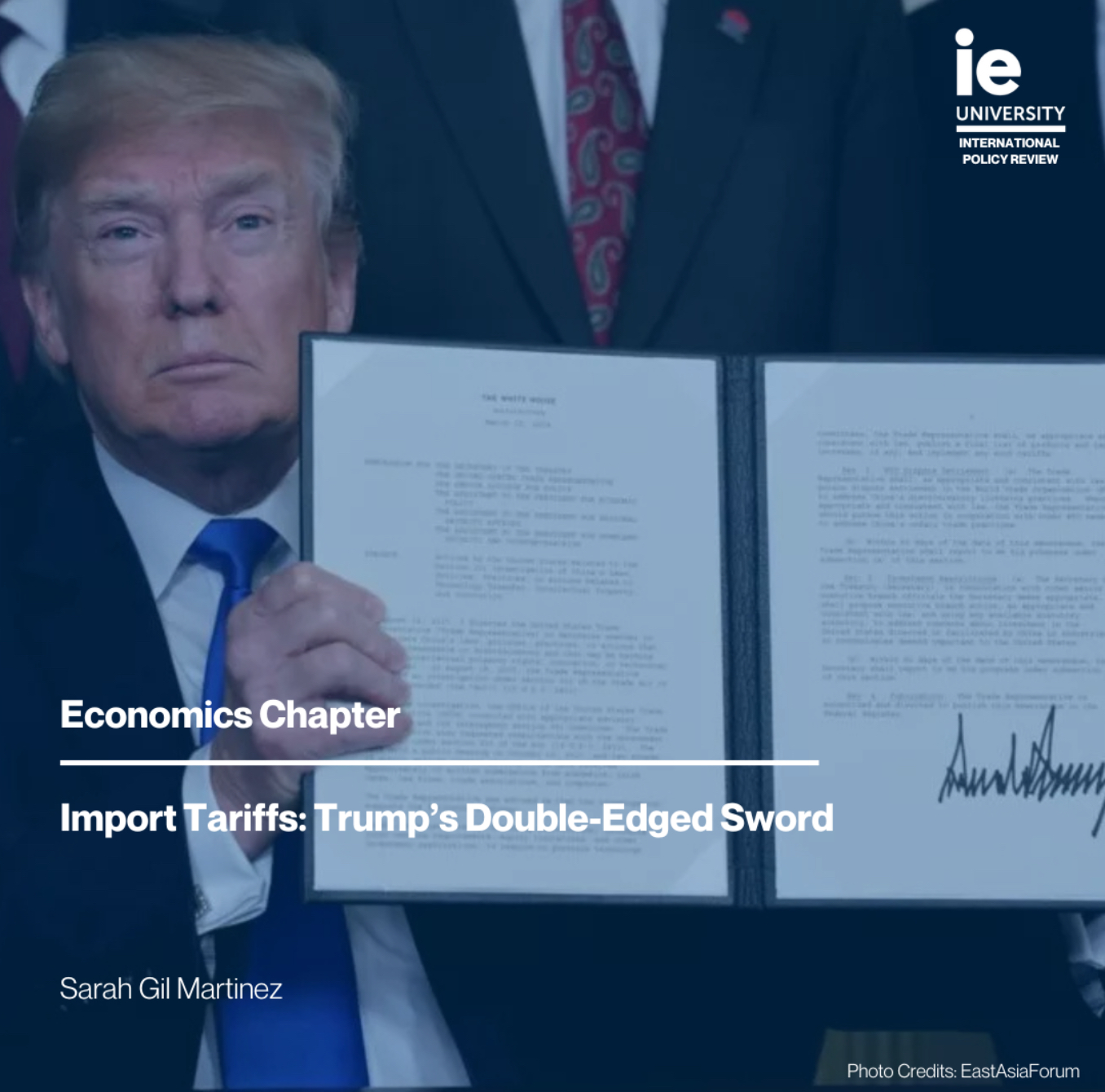
01 Jul Import Tariffs: Trump’s Double-Edged Sword
Sarah Gil Martinez
School of Politics, Economics & Foreign Affairs, IE University, Madrid, Spain
E-mail: sarahgilm@student.ie.edu
Abstract
This policy review paper provides an evaluation of the steel, aluminum, and solar tariffs imposed by Trump’s first administration and their respective effects on the US economy. It was motivated by the recent emergence of protectionism within the international sphere, most notably exhibited by American leadership. The main focus of economic implications being researched is inflation and industry productivity. For this, a tariff pass-through rate analysis and productivity elasticity modeling have been applied. The paper found several contrasting results regarding increases in consumer prices. While some tariffs particular to the steel industry were able to avoid translations into inflation, others in the solar sector contributed to wage-inflicted consumer price increases. Additionally, in the case of productivity, results were also divided. On one hand, in the case of aluminum, the imposition of tariffs led to significant declines in productivity. However, on the other hand, in the case of the steel sector, tariffs led to a marginal increase in productivity. Overall, these findings indicate that tariffs behaved as “double-edged swords,” in some cases Improving domestic productivity & avoiding inflationary pressures, while causing the complete opposite effects in others. The policy recommended includes wage adjustment mechanisms aimed at counteracting inflationary
pressures, as well as the implementation of innovation-driven subsidized programs targeting industries where competitiveness cannot be achieved due to low efficiency & break-even concerns.
READ THE FULL ARTICLE HERE (Page 16-32)
Keywords: protectionism, tariff, trade wars, industry productivity, wage-inflicted inflation, T rump

Sorry, the comment form is closed at this time.